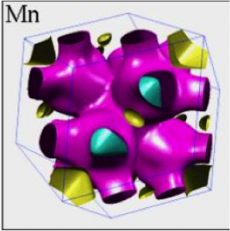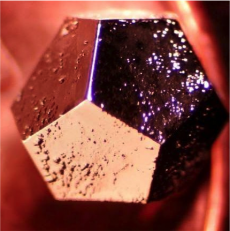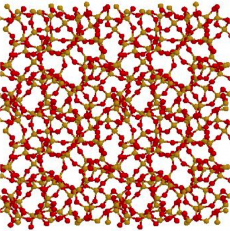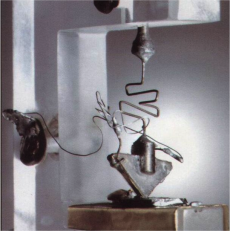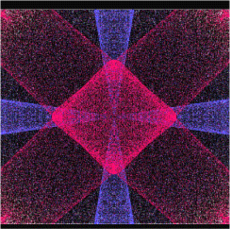Condensed Matter Theory 1 (MVTheoCM1, MVSpec)
Wintersemester 2024/2025
Dozent: Haverkort M, Schmidt R
34 Teilnehmer/innen
Dozent: Haverkort M, Schmidt R
34 Teilnehmer/innen
Condensed Matter Theory
Condensed Matter Theory I:
The complexity of 1023 particles interacting with each other in a solid give rise to many emergent phenomena one would not predict from the simple interactions between two electrons. In this lecture we will, starting from simple models and theories work our way into the contemporary theory of many particle physics.
The lecture follows for a large part the textbook of Ashcroft and Mermin, with one big difference. The formentioned text-book is based on a text over 50 years old. During the last decades new methods have emerged, often removing the need to know the full wave-function of the system to answer the problem, by using Green's functions. Whenever possible the later will be used within this lecture.
Concepts of many particle systems discused are:
- The Drude Theory of Metals
- The Sommerfeld Theory of Metals
- Electrons in a periodic potential
- Tight binding
- Band-structure, Fermi-surface, Density of states, Metals, Insulators, Semiconductors
- Semiconductor physics
- Surface states
- Phonons and disorder
- Relativistic corrections - spin-orbit coupling
- Phase transitions and topology
- Response functions
Theoretical / Mathematical tools used will be
- Second quantization
- Green's functions (on an independent particle level)
- Self energy (for surface states and disorder)
Levels of theory discussed will be
- Mean-field theory
- Hartree-Fock
- Density functional theory
Materialien
Recommended Literature
-
Ashcroft / Mermin
Solid State Physics -
Kittel
Introduction to Solid State Physics -
Mattuck
A guide to Feynman Diagrams in the Many-Body Problem -
E.N. Economou
Green's Functions in Quantum Physics -
MajlisThe Quantum Theory of Magnetism
-
Haken / WolfThe Physics of Atoms and Quanta
-
There is a script that acompanies the lecture. Feedback and typos are most welcome.
Übungsblätter
Übungsgruppen
- Gruppe 1
17 Teilnehmer/innen
Phil 19 EG.010, Mo 09:15 - 11:00 - Gruppe 02
14 Teilnehmer/innen
Philoso.-weg 12, R 105, Mo 14:15 - 16:00
| 14.10.2024 - 20.10.2024 |
No tutorial on 14.10. First lecture is on Wednesday morning 16.10 Chapter 1 and 2 plus appendix A of the script. Chapter 1 + appendix A: Introduction and repetition of Quantum mechanics and second quantisation. The Hamiltonian of interest for condensed matter systems. Complexity of many electron system and emergent behaviour. Chapter 2: Drude model, Scattering length, Ohms law and Specific Heat |
| 21.10.2024 - 27.10.2024 | Chapter 3 of the script. Sommerfeld model, Fermi surface, band-structure or energy momentum dispersion and density of states. Solution to the specific heat problem in the Drude model. Scattering time and the probelm of near scattering length: Why do atomic nuclei in a periodic lattice appearently not scatter electrons ? |
| 28.10.2024 - 3.11.2024 |
No lecture on Friday 1.11.2024 Continuation of chapter 3 of the script |
| 4.11.2024 - 10.11.2024 |
Chapter 4 (and appendix B) of the script. Periodic potentials, Bloch states, Bloch's theorm, crystal momentum. (Real and reciprocal lattice vectors) -- I assume this chapter is a repetition of lectures you heard before |
| 11.11.2024 - 17.11.2024 | Chapter 5 of the script. Mean-field methods. A short overview of different mean-field theories used to obtain effective potentials from interacting Hamiltonians |
| 18.11.2024 - 24.11.2024 | Chapter 6 of the script. Tight binding theory. Dual nature of Tight binding model and free electron model. Sign of hopping integrals, angular dependence of hopping integrals. Tight binding description of free electron bands. |
| 25.11.2024 - 1.12.2024 | Chapter 6 and 7 of the script. Wannier functions, band character and partial density of states + Definitions of Green's functions frequency and time doman and relation to band-structure. |
| 2.12.2024 - 8.12.2024 | Chapter 7 of the script. Green's functions. Impurity scattering - Become fluent in working with Green's functions. |
| 9.12.2024 - 15.12.2024 | Finish chapter 7. |
| 16.12.2024 - 22.12.2024 |
(16.12) Chapter 8 of the script. Self energy due to disorder. (18.12) Chapter 10 of the script, Relativisitc effect. (Single lecture, no part of the exam). |
| 6.01.2025 - 12.01.2025 |
No tutorial on Monday the 6th. Chapter 9 of the script, Surface states |
| 13.01.2025 - 19.01.2025 | Chapter 11 of the script, Phase transitions. - Topological states and surface states |
| 20.01.2025 - 26.01.2025 | Chapter 11 of the script, Phase transitions. - Topological states and surface states |
| 27.01.2025 - 02.02.2025 | Time to study |
| 05.02.2025 or 07.02.2025 | Exam on Wednesay 05.02.2025 from 9:00 to 11:00 |
Schedule
- The lectures are on Wednesday and Friday from 9:15 to 11:00 in Philosphenweg 19.
- The tutorials are on Monday from 9:15 to 11:00 in Philosophenweg 19 or on Monday from 14:15 to 16:00 in Philosophenweg 12 R 105.
- The first lecture is on Wednesday the 16th. of October.
- The first tutorial is on Monday the 28th.
The lectures will be in person. If you miss a lecture you can find videos of the lectures of 2020 on Youtube.




